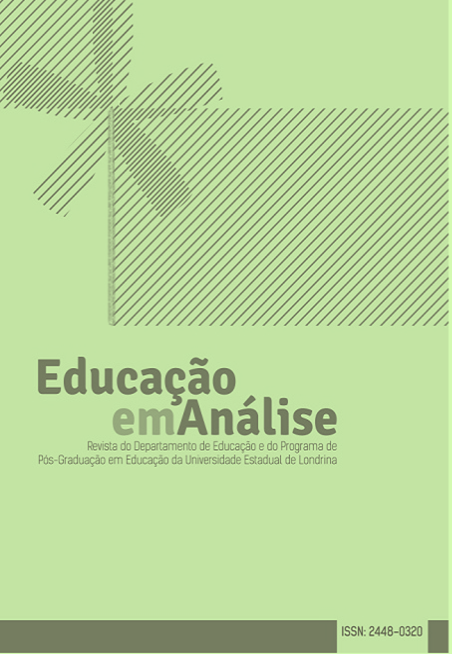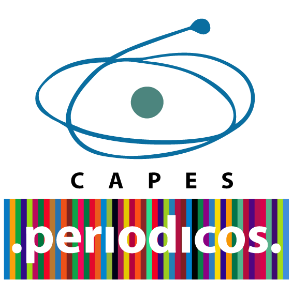Strange desires: the proliferation of scientific categories about "disability desires"
DOI:
https://doi.org/10.5433/1984-7939.2021v6n1p52Keywords:
Disability, Sexuality, Disability studies, Crip theory, DesireAbstract
In problematizing the statements about the "desire for disability" as sexual or identity pathologies, I propose an incursion into the terminologies and biomedical configurations on the subject to understand which discourses are triggered when it is discriminated as "sick" those and those that seek to relate erotically to disabled or who want to cause injuries in their own bodies. For this, I investigated the clinical bibliography produced on devotees, pretenders and wannabes, aiming to systematize to the maximum historically the continuities and discontinuities in the creation of these 'pathological types'. Concomitantly, aiming to establish a critical dialogue with biomedical knowledge on sexuality and disability, I make a more punctual foray into the intersection between disability studies and queer theory, the so-called crip theory.
Downloads
References
BARIL, A. Needing to acquire a physical impairment/disability: (re) thinking the connections between trans and disability studies through transability. Hypathia: journal of feminist philosophy, Oregon, v .30, n. 1, p.30-48, 2015.
BAYNE, T.; LEVY, N. Amputees by choice: body integrity identity disorder and the ethics of amputation. Journal of Applied Philosophy, Oxford, v. 22, n. 1, 2005.
BENTO, B. A. M. A reinvenção do corpo: sexualidade e gênero na experiência transexual. Rio de Janeiro: Garamond, 2006.
BENTO, B. O que é transexualidade?. 2. ed. São Paulo: Brasiliense, 2012. (Coleção Primeiros Passos).
BENTO, B.; PELÚCIO, L. Despatologização do gênero: a politização das identidades abjetas. Revista Estudos Feministas, Florianópolis, v. 2, n. 2, p. 559-568, 2012.
BLOCK, P. Sexuality, fertility, and danger - twentieth-century images of women with cognitive disabilities. Sexuality and Disability, [London], v. 18, n. 4, p. 239-254, 2000.
BLOCK, P. Sexuality, parenthood and cognitive disability in Brazil. Sexuality and Disability, [London], v. 20, n. 1, p. 7-28, 2002.
BRUNO, R. Devotees, pretenders and wannabes: two cases of factitious disability disorder. Sexuality and Disability, [London], v. 15, n. 4, p. 243-260, 1997.
CAMPBELL, F. K. Inciting legal fictions: disability's date with ontology and the ableist body of the law. Griffith Law Review, Brisbane, v. 10, n. 1, p. 42-62, 2001.
CAMPBELL, F. K. Contours of ableism: the production of disability and abledness. Califórnia: Pallgrave McMillan, 2009.
CONNELL, R. Southern theory: the global dynamics of knowledge in social science. Cambridge: Polity Press, 2007.
DAVIS, J. L. Prosuming identity - the production and consumption of transableism on transabled.org. American Behavioral Scientist, Princeton, v. 56, n. 4, p. 596-617, 2012.
DAVIS, L. J. The end of identity politics and the beginning of dismodernism. In: DAVIS, L. J. (ed.). The disability studies reader. New York: Routledge, p. 231-242, 2006.
DINIZ, D. Modelo social da deficiência: a crítica feminista. Brasília: Letras Livres, 2003. (Série Anis, v. 28).
DINIZ, D. O que é deficiência. São Paulo: Editora Brasiliense, 2007.
DUARTE, L. C.; ROHDEN, F.. Entre o obsceno e o científico: pornografia, sexologia e a materialidade do sexo. Rev. Estud. Fem., Florianopolis, v. 24, n. 3, p. 715-737, Dec. 2016.
ELLIOTT, C. A new way to be Mad. [S. l.]: The Atlantic, 2000. Disponível em: http://www.theatlantic.com/past/issues/2000/12/elliott.htm. Acesso em: 28 de outubro de 2013.
FERREIRA, Carolina Branco de Castro. Desejos regulados: grupos de ajuda mútua, éticas afetivo-sexuais e produção de saberes. Tese (Doutorado) - Instituto de Filosofia e Ciências Humanas, Unicamp, 2012.
FINE, M.; ASCH, A. Disabled women: sexism without the pedestal. The Journal of Sociology and Social Welfare, Michigan, v. 8, n. 2, p. 233-248, 1981.
FINE, M.; ASCH, A. (ed.). Women with disabilities: essays in psychology, culture, and politics. Philadelphia: Temple University Press, 1988.
FINGER, A. Forbidden fruit. New Internationalist, New York, n. 233, 1992.
FIRST, M. B. Desire for amputation of a limb: paraphilia, psychosis, or a new type of identity disorder?. Psychological Medicine, Cambridge, v. 35, n. 6, p. 919-928, 2005.
FOUCAULT, M. História da sexualidade I: a vontade de saber. São Paulo: Graal, 2005.
GARLAND-THOMSON, R. From Wonder to error: a genealogy of freak discourse in modernity. In: MITTMAN, A.; HENSEL, M. (Eds.). Classic Readings on Monster Theory: Demonstrare, Volume One. Leeds: Arc Humanities Press, p. 89-98, 2018.
GAVÉRIO, M. A. Medo de um planeta aleijado? notas para possíveis aleijamentos da sexualidade. Áskesis, São Carlos, v. 4, p. 103-117, 2015.
GAVÉRIO, M. A. Nada sobre nós, sem nossos corpos! O local do corpo deficiente nos disability studies. Revista Argumentos, v. 14, p. 95-117, 2017a.
GAVÉRIO, M. A. Estranha Atração: A Criação de Categorias Científicas para Explicar os Desejos pela Deficiência. Dissertação (Mestrado) - Programa de Pós-graduação em Sociologia, Centro de Educação e Ciências Humanas, UFSCar, 2017b.
GILMAN, S. L. Difference and pathology: stereotypes of sexuality, race, and madness. Ithaca: Cornell University Press, 1985.
HAHN, H. The social component of sexuality and disability: some problems and proposals. Sexuality and Disability, [London], n. 4, p. 220-233, 1981.
HALL, S. Identidade cultural e diáspora. Revista do Patrimônio Histórico e Artístico Nacional, Rio de Janeiro, n. 24, p. 68-75, 1996.
HALL, S. The spectacle of the other. In: HALL, S. (ed.). Representation: cultural representation and signifying practices. London: SAGE Publications, 1997a.
HALL, Stuart. The Work of Representation. In: HALL, Stuart (ed.). Representation: Cultural Representation and Signifying Practices. London: SAGE Publications, 1997b.
HARAWAY, D. Manifesto Ciborgue: ciência, tecnologia e feminismo-socialista no final do século XX. In: SILVA, T. T. (org.). Antropologia do Ciborgue: as vertigens do pós-humano Hari Kunzru e Donna Haraway. Belo Horizonte: Editora Autêntica, 2000. p. 33-118.
HARLOS, F. E. Sociologia da deficiência: vozes por significados e práticas (mais) inclusivas. São Carlos: UFSCar: PPGES, 2012.
HUGHES, B.; PATERSON, K. The social model of disability and the disappearing body: towards a sociology of impairment. Disability & Society, London, v. 12, n. 3, p. 325 - 340, 1997.
IRVINE, J. Disorders of Desire: sexuality and gender in modern american sexology. Ithaca: Temple University Press, 2005.
KAFER, A. Feminist, Queer, Crip. Bloomington: Indiana University Press, 2013. (Edição Kindle).
LA MUERTE de la clínica?. Paul Beatriz Preciado. [S. l.: s. n.], 2013. 1 vídeo (1h54). Disponível em: https://www.youtube.com/watch?v=4aRrZZbFmBs. Acesso em: 10 de março de 2015
LEITE JUNIOR, J. Nossos corpos também mudam: a invenção das categorias 'travesti' e 'transexual' no discurso científico. São Paulo: Annablume, 2011.
MACHADO, P. S. O sexo dos anjos: um olhar sobre a anatomia e a produção do sexo (como se fosse) natural. Cadernos Pagu, São Paulo, v. 24, p. 249-281, 2005.
MANUAL diagnóstico e estatístico de transtornos mentais: DSM - 5. Tradução Maria Inês Corrêa Nascimento et al. 5. ed. Porto Alegre: Artmed, 2014. Título original: Diagnostic and statistical manual of mental disorders.
MCNEIL, M. Feminist cultural studies of science and technology. New York: Routledge, 2007.
MCRUER, R. Crip theory: cultural signs of queerness and disability. New York: New York University Press, 2006.
MCRUER, R. Critical investments - AIDS, Christopher Reeve, and Queer-Disability Studies. Medical Humanities, London, v. 23, n. 3/4, p. 221-237, 2002.
MCRUER, R.; MOLLOW, A. (ed.). Sex and disability. Durham, NC: Duke University, 2012. Kindle edition.
MCRUER, R.; WILKERSON, E. Desiring disablity, queer theory meets disability studies. A Journal of Lesbian and Gay Studies, Durham, v. 9, n. 1/2, p. 01-23, 2003.
MEINERZ, N. E. Corpo e outras (de) limitações sexuais: uma análise antropológica da revista Sexuality and Disabilty. Revista Brasileira de Ciências Sociais, São Paulo, v. 25, p. 117-132, 2010.
MELLO, A. G. Por uma abordagem antropológica da deficiência: pessoa, corpo e subjetividade. 2009. Trabalho de Conclusão de Curso (Graduação em Ciências Sociais) - Universidade Federal de Santa Catarina, Florianópolis, 2009.
MELLO, A. G.; NUERNBERG, A. H. Gênero e deficiência: interseções e perspectivas. Revista Estudos Feministas, Florianópolis, v. 20, n. 3, p. 635-655, set. 2012.
MELLO, A. G. Dos pontos de vista antropológico, queer e crip: corpo, gênero e sexualidade na experiência da deficiência. In: GROSSI, M.; FERNANDES, F. (org.). A força da "situação" de campo: ensaios sobre antropologia e teoria queer. Florianópolis: EdUFSC, 2018.
MELLO, A. G.; GAVERIO, M. A. Facts of cripness to the Brazilian: dialogues with Avatar, the film/Fatos da aleijadice à brasileira: diálogos com Avatar, o filme. Anuário Antropológico, Brasília, v. 44, n. 1, p. 43-65, 2019.
MEYEROWITZ, B. E.; CHAIKEN, S.; CLARK, L. K.. Sex roles and culture: social and personal reactions to breast cancer. In: FINE, M.; ASCH, A. (ed.). Women with disabilities: essays in psychology, culture and politics. Philadelphia: Temple University Press, p. 72-89, 1988.
MISKOLCI, R. Negociando visibilidades: segredo e desejo em relações homoeróticas masculinas criadas por mídias digitais. Bagoas: estudos gays: gêneros e sexualidades, Natal, v. 8, p. 51-78, 2014.
MONEY, J.; SIMCOE, K. W. Acrotomophilia, sex, and disability: new concepts and case report. Sexuality and Disability, [London], v. 7, p. 43-50, 1986.
MONEY, J.; JOBARIS, R.; FURTH, G. Apotemnophilia: two cases of self-demand amputation as paraphilia. The Journal of Sex Research, New York, v. 13, n. 2, p. 115-125, 1977.
MONEY, J. Paraphilia in females - fixation on amputation and lameness, two personal accounts. Journal of Psychology & Human Sexuality, London, v. 3, p. 2, p. 165-172, 1991.
O'TOOLE, C.; BREGANTE, J. L. Lesbians with disabilities. Sexuality and Disability, [London], v. 10, n. 3, p. 163-172, 1992.
RAMÍREZ, J. M. Antropología Crip: Cuerpo, Discapacidad, Cuidado e Interdependencia. Ciudad de México: La Cifra Editorial, 2019.
SCOTT, J. W. Gênero: uma categoria útil de análise histórica. Educação e Realidade, Porto Alegre, v. 20, n. 2, p. 71-99, 1995.
SEDGWICK, E. K. How to Bring Your Kids up Gay. In: WARNER, M. (ed.). Fear of a queer planet: queer politics and social theory. Minneapolis: University of Minnesota Press, p. 69- 81, 1993.
SHAKESPEARE, T.; GILLESPIE-SELLS, K.; DAVIES, D. The sexual politics of disability: Untold Desires. London: CASSELL, 1996.
SHILDRICK, M. Contested pleasures: the sociopolitical economy of disability and sexuality. Sexuality Research & Social Policy, London, v. 4, n. 53, p. 53-66, 2007.
SHUTTLEWORTH, R. P.; MONA, L. Introduction. Disability Studies Quarterly , [S. l.], v.22, n. 4, p. 2-9, 2002.
SMITH, R. C. Amputee identity disorder and related paraphilias. Psychiatric, [London], v. 3, n. 8, p. 27-30, 2004.
STEVENS, B. Interrogating transability: a catalyst to view disability as body art. Disability Studies Quarterly, [S. l.], v. 31, n. 4, 2011.
STIKER, H. J. A history of disability. Ann Arbor: University of Michigan Press, 1999.
TRAWEEK, S. An introduction to cultural and social studies of sciences and technologies. Cult Med Psych., London, v. 17, n. 3, p. 3-25, 1993.
TREMAIN, S. Foucault, governmentality, and critical disability theory: an introduction. In:
TREMAIN, S. (ed.). Foucault and the government of disability. Ann Arbor: The University of Michigan Press, p. 01-24, 2005.
TREMAIN, S. Queering disabled sexuality studies. Sexuality and Disability, [London], v. 18, n. 4, 2000.
WEEKS, J. Sexuality and its discontents: meanings, myths & modern sexualities. New York: Routledge, 2002.
Downloads
Published
How to Cite
Issue
Section
License
Copyright (c) 2021 Educação em Análise

This work is licensed under a Creative Commons Attribution 4.0 International License.
Os artigos publicados na Revista Educação em Análise estão sob a Licença Creative Commons Atribuição 4.0 Internacional, garantindo Acesso Aberto. Deste modo, os autores mantêm os direitos autorais de seus trabalhos e, em caso de republicação, solicita-se que indiquem a primeira publicação nesta revista. Essa licença permite que qualquer pessoa leia, baixe, copie e compartilhe o conteúdo, desde que a devida citação seja feita. Além disso, autoriza a redistribuição, adaptação e criação de obras derivadas em qualquer formato ou meio, incluindo uso comercial, desde que a atribuição à revista seja mantida.
A revista se reserva o direito de efetuar, nos originais, alterações de ordem normativa, ortográfica e gramatical, com vistas a manter o padrão culto da língua e a credibilidade do veículo. Respeitará, no entanto, o estilo de escrever dos autores. Alterações, correções ou sugestões de ordem conceitual serão encaminhadas aos autores, quando necessário.
As opiniões emitidas pelos autores dos artigos são de sua exclusiva responsabilidade.
























